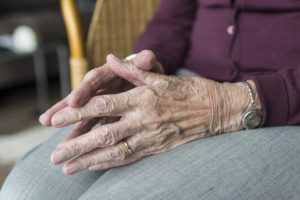
[This resource was created on 4/8/2020. Visit the NYC Health and NY DOH COVID-19 website for up to date information about city and state requirements and guidance]
“Social distancing” and “sheltering in place” are vital measures to slow the spread of COVID-19, and are particularly important to protect the older adults in our community who are more severely impacted by COVID-19.
However, for many older adults, “sheltering in place” means isolation from their community, difficulty accessing necessary resources, and – for those experiencing abuse at home – being trapped inside with their abuser.
Regardless of experience of abuse, older adults are particularly impacted by COVID-19 due to:
- Increased likelihood of severe and life-threatening cases of COVID-19;
- Inability to access community support due to closures of senior centers, prohibitions on dining at cafes and restaurants, delays of non-emergency medical care, etc.;
- Decreased access to essential goods, including groceries and medication, due to fear of exposure; and
- Decreased access to social support from family and friends who may stop visiting.
The impact of COVID-19 can be particularly stark when an older adult is experiencing abuse from someone they live with. The National Domestic Violence Hotline’s Staying Safe During COVID-19 points out ways that abusers may leverage the pandemic to exert control:
- “Abusive partners may share misinformation about the pandemic to control or frighten survivors, or to prevent them from seeking appropriate medical attention if they have symptoms”;
- “Travel restrictions may impact a survivor’s escape or safety plan – it may not be safe for them to use public transportation or to fly”; and
- “Abusive partners may withhold necessary items, such as hand sanitizer or disinfectants.”
All these factors converge to produce a unique risk of harm for older adults experiencing abuse at home.
Professionals in the elder justice field have been grappling with many questions in these new and changing times: how do you safety plan when someone is stuck at home with their abuser, the courts are closed, the hospitals are overwhelmed, the senior centers are closed, and many service providers are operating remotely or at reduced capacity? How are these public health measures being used by abusers as mechanisms of power and control?
In this time of “social distancing” and “sheltering in place,” we must lean into our relationships and support systems. It is more important than ever to check in with community members and loved ones. Safety planning might look different today than it did last month, but, if you or someone you know may be experiencing abuse, it is as important as ever to reach out and work to find ways to increase safety.
Social service agencies are responding by stepping up services or finding creative ways to adapt.
Key services are still operating in New York City and Westchester, including:
- The Weinberg Center for Elder Justice
- Professional referrals can be made by calling 1-800-56-SENIOR
- Family Justice Centers (operating remotely by phone)
- Bronx Family Justice Center 718-508-1220
- Brooklyn Family Justice Center 718-250-5113
- Manhattan Family Justice Center 212-602-2800
- Queens Family Justice Center 718-575-4545
- Staten Island Family Justice Center 718-697-4300
- Adult Protective Services (working with clients remotely when possible)
- Referrals can be submitted by calling NYC APS Central Intake 212-630-1853
Hotlines are continuing to operate as usual:
- Elder Abuse Helpline for Concerned Persons: call 212-746-6905 or email helpline@nyceac.org.
- National Domestic Violence Hotline: call 1-800-799-7233, text “LOVEIS” to 22-522, or visit org
- Safe Horizon 24-hour Domestic Violence Hotline: call 1-800-621-HOPE (4673)
- New York City Bar Association Legal Hotline: call 212-626-7383 or visit https://www.citybarjusticecenter.org/legal-hotline/
Access to food is a vital component of safety planning:
- GetFoodNYC Food Delivery Program will deliver meals to individuals who cannot access food themselves as a result of COVID-19. Get more information or sign up by calling 311 or visiting https://portal.311.nyc.gov/article/?kanumber=KA-03297
Many partners have compiled lists of resources available during COVID-19:
- For information about food assistance, health and medical assistance, employment resources, financial assistance, rental arrears and public assistance, emotional support, and spiritual care:
- Help Now NYC, Assistance for Individuals
- For information about safety planning:
- Sanctuary for Families, Safety Planning During COVID-19: Tips From Survivors For Survivors
- For information about accessing remote mental health support:
